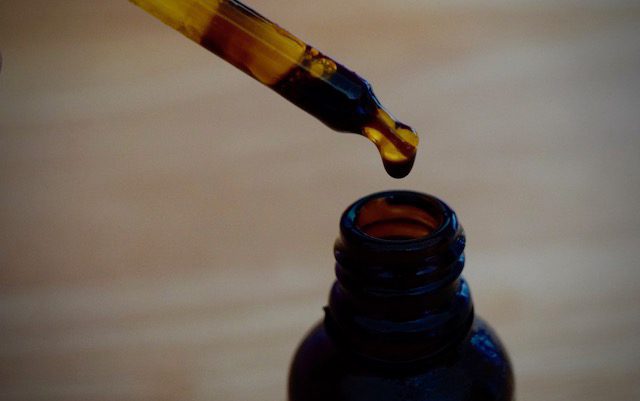Oils with a high CBD (cannabidiol) content have enjoyed a rise in popularity in the European market lately. As long as the THC content is no higher than 0.2% in most (but sadly, not all) European member states, CBD oil is perfectly legal.
Consumers are more aware of the medicinal properties of CBD and its non-psychotropic effect when ingested or inhaled.
This surge in awareness and demand has created a large – and unregulated – industry. Thanks to Europe’s free market, consumers are able to buy from another EU state with ease.
In Prague, under the framework of Patient Focus Certification (PFC), the world’s first independent testing took place of the quality of cannabidiol (CBD) products available on the retail market and the composition of “cannabis oils” available in the European Union. The results were found to be worrisome and highlighted the need for independent certification of the quality of mass-produced products made from cannabis.
Essentially, consumers only have the label and claims from the producer to go on when buying their CBD products. There is no way for them to test and validate these claims on their own. It is even difficult for the producers to get their products tested, so where this information is coming from is open to discussion.
In cooperation with the first European laboratory with a PFC certification – working within the Department of Food Analysis and Nutrition of the University of Chemistry and Technology, Prague (VŠCHT) – the International Institute for Cannabis and Cannabinoids (ICCI), also headquartered in Prague, assessed the quality of certain types of commercially available CBD oils on the European market.
Professor Jana Hajšlová, who led the testing, says, “For both categories, we are interested in the quality and authenticity of used oils and possible content of environmental contaminants, polycyclic aromatic hydrocarbons (PAH), which accumulate in oils (for protecting the health of their consumers, maximum limits have been anchored in legislation. For “CBD oils”, we also examined the consistency of the determined contents of CBD with the producer’s stated values and the potential content of THC.” THC, or tetrahydrocannabinol, is the main psychotropic substance found in cannabis that gets you high.
Professor Hajšlová and her team tested 29 oils containing the non-psychotropic biologically active substance from cannabis – CBD – and 25 oils from cannabis seeds purchased on the EU market in the last quarter of 2016.
Tomáš Zábranský, Director of Research at ICCI, explained why the following aspects were selected in the assessment of edible cannabis-based foods, “Multi-core polycyclic aromatic hydrocarbons, such as benzopryrene, are classified as carcinogens and genotoxic mutagens of class IIa – according to the classification of the International Agency for Research on Cancer (IARC). That means they are substances whose carcinogenicity was proven experimentally on animals, even though not on people (otherwise being prevented for ethical reasons), they have nevertheless been proven by a multitude of epidemiological studies. This especially pertains to ill persons trying to utilize the beneficial effects of CBD, but polycyclic aromatic hydrocarbons are unquestionably hazardous, mainly upon long-term (chronic) reception.”
In other words, what some people are buying to make them better could well have a detrimental effect on their health.
Another unexpected outcome of taking uncertified CBD products could be that you consume more THC than you were expecting. This could be seen as a nice problem for some, but potentially dangerous if the consumer is working in a hazardous environment, or even just doing a school or shopping run.
Tomáš explains, “Another problem is the excessive content of THC in the blood after use of CBD oils. THC is another medicinally active substance from cannabis, but it is psychoactive as opposed to CBD. Even its relatively low quantities can cause changes in perception among more sensitive individuals, which could jeopardize their ability to drive or make decisions in general – especially if they are not aware of the possibility of their psyche being influenced by an external substance.”
There could be legal implications for the consumer, too. “Another problem for drivers may be testing positive for THC upon traffic stops, which could lead at least to losing one’s driver’s license. Generally speaking, any psychoactive substance in one’s body about which one has no idea is always a problem.”
The results of their analysis exceeded expectations of the deficiencies in the claims of the producers. This lead ICCI, along with the Department of Food Analysis and Nutrition, to issue a warning to European consumers about the risks of hazardous contaminations.
They discovered that, in terms of the content of polyaromatic hydrocarbons (PAH), only 9 out of 29 (31%) of tested CBD oils were satisfactory.
Cannabis oils (which are actually oils from cannabis seeds and not from the plant) enjoyed better success in this basic food safety criterion. In this category, 23 out of 25 tested sample products (92%) satisfied the legal limits of PAH in foods.
The quality analysis also uncovered a problem in the lack of awareness of customers on the composition of the given product. A full 60% of tested CBD oils did not have any mention of the THC level on the label. This is important as consumers need to know if they exceed the recommended or maximum dosage of THC. Otherwise, they could end up testing positive for a THC level higher than the limit of 2ng per ml of blood upon screening during a traffic stop or employment.
For a quarter of the tested oils, the risk is affiliated with the use of a recommended dose and another 10% evoke this risk upon using the maximum dosage stated on the packaging. Further, labels of 34% of CBD oils showed discrepancies between the true content of CBD, or sums of CBD and cannabidiolic acid (CBDA), and the content stated by the producer.
This means that CBD consumers could not only be just plain old ripped off, they could be taking substances detrimental to their health, hazardous to their safety and psychological well-being, and they could be unwittingly breaking the law whilst driving or lose their job after a drug test.
With the European hemp industry growing so much in recent years, ICCI’s study and other independent testing of the quality of cannabis-based products designed for human consumption highlight the need to introduce and observe standards for safe production and distribution.
Having met many people working within the industry over the last few years, I get the impression they are not trying to pull the wool over the eyes of innocent consumers, but rather they lack the knowledge to setup and manage facilities involved in the production and distribution of cannabis-related products. Up until now, there was no way for them to gain this knowledge.
Therefore last year, ICCI licensed the PFC program from the nonprofit American patient organization ASA (Americans for Safe Access) for certification outside the USA and localized the certification criteria for use in the EU.
Pavel Kubů, CEO of ICC,I explains what will happen with the results of this testing, “We are contacting all producers of the tested edible cannabis-based food products, we will share with them the results and offer assistance in checking the safety and increasing the quality of their products. The list of those foods that satisfied limits in the PAH analysis will be available to all consumers on the PFC International website. Members of patient organizations associated in the international association (IMCPC) will be provided information through the association KOPAC regarding the quality of the oil that they use and find out whether it was amongst those tested, and if so, with what results.”







I’ve been smoking my Quanta CBD vape for months now, and what it’s done for my chronic back pain is nearly unimaginable. So sad that people arent opening their minds up to the medicinal possibilities of this amazing drug 🙁
Great article, thank you.
It’s about time the contents of CBD related products was analyzed for purity, THC content and carcinogenic by products. Let’s hope that legal cannabis goes through the same inspection as it becomes legal throughout the world.
Hi, can canabis oil help treat secondary breast cancer?